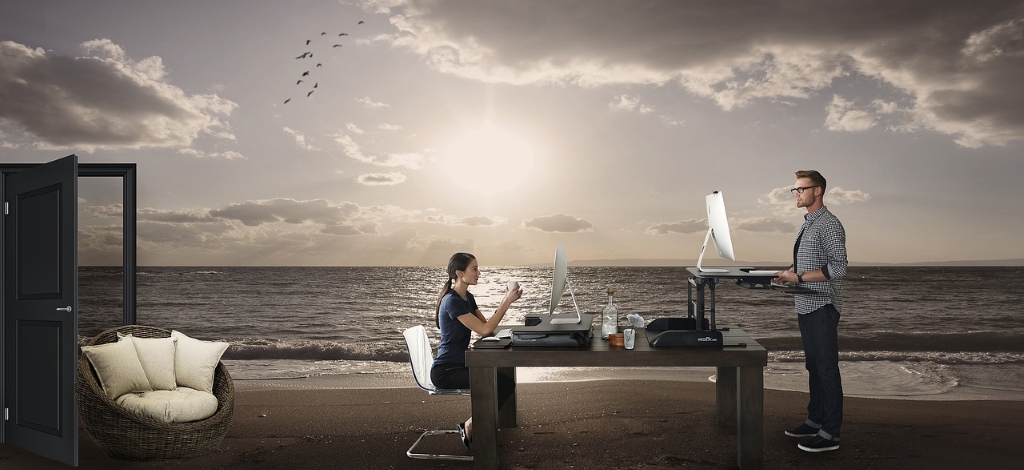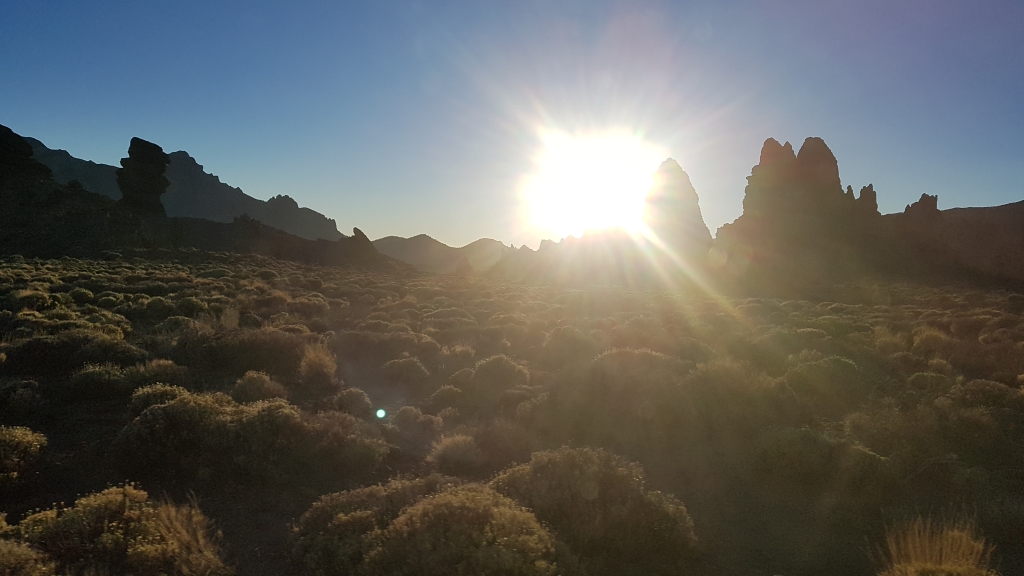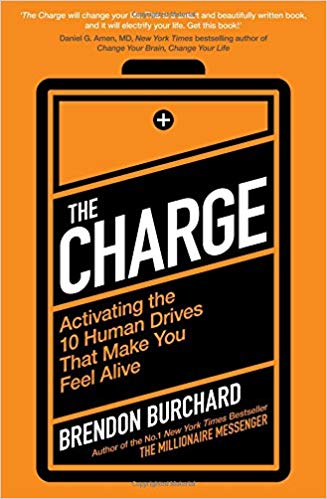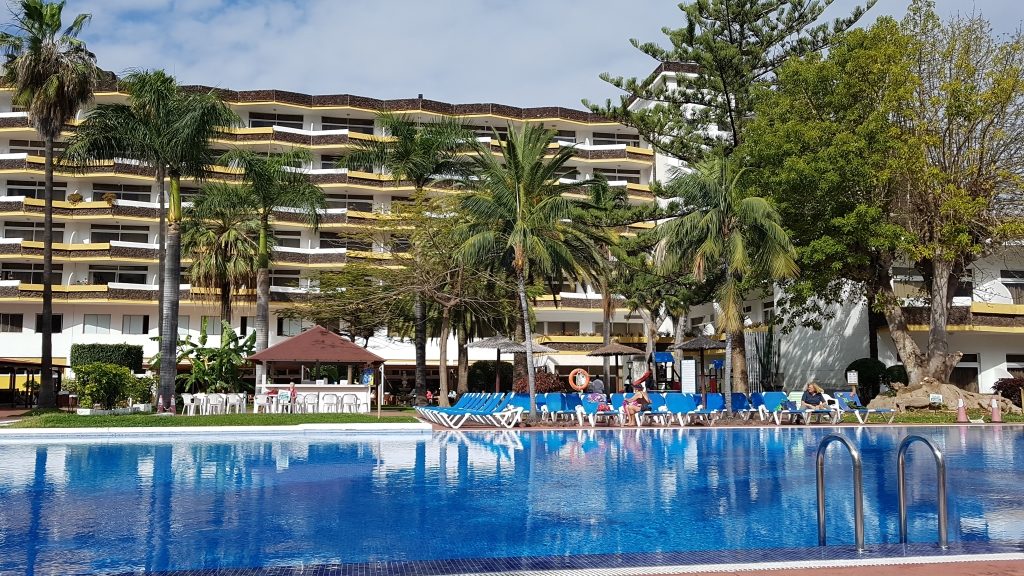Remote work is a concept that’s rapidly growing in popularity. In an age where most people are living in or moving to cities, spending 15 hours per week commuting, are increasingly concerned with the environment, and where many feel as if they’ll never be able to afford a home near their jobs, maybe it’s not so hard to see why. However, remote work does present several challenges, and may not be right for every organisation or worker.
Remote work is the ability to do your job away from the office. There may not even be an office in the case of “fully distributed” teams. Thanks to books like the 4 Hour Work Week, people have an idealised vision of getting their work done in a few hours on the beach and then surfing and sipping margaritas for the rest of the day. The beautiful thing is, this is sort of possible. Remote work does facilitate more travel, ‘stay-cations’, or a ‘nomadic lifestyle’, but it’s not the norm for most remote workers. Workers tend to put in approximately the same level of hours as before, just minus the commute if they work from home. They may even still commute to a local coffee shop or co-working space like WeWork just to get out of the house.
It has its challenges, but I’m a huge advocate of Remote Work for all of the reasons that I’ll mention today (and alluded to last week). Let’s go!
Types of Work Today
- Traditional: Nearly everybody has worked in this way at some point in their career. It’s work that is fully dependent on the worker’s presence at the location. Many of these jobs can’t yet be done remotely (restaurant staff, electrician, builder, tour guide) but many can (customer support, sales, marketing, programmer, anything to do with software products nearly).
- Remote: The work is done entirely off-site, if there even is a site. Communication is all online or over the phone. We’re talking about home crafts businesses, digital nomad bloggers, influencers, freelance coders, etc.
- Hybrid: Well, it’s what it sounds like. It blends the two extremes. Workers have the option to work from home, but are often required to come in to the office to meet clients, have team meetings, or access certain equipment or confidential information. Hybrid workers aren’t typically free to fly off to Bali at the drop of a hat, but this form of work is rapidly becoming more common as companies begin to experiment with remote work but aren’t quite ready to commit fully.
I’ve worked all 3 types. Most of the last 5 years have been Remote for me, but within that I also moved back to a traditional role for a few months. It really would have benefited from a hybrid model (it was a software company with a young staff) and while I enjoyed the role, it felt a bit like stepping back in time in certain respects.
Remote Work Benefits
Cost Savings
According to facts presented to the Oireachtas (Irish Government) by Vanessa Tierney of remote work recruiters Abodoo, a company can save €10,000 per remote worker, while the worker saves €7,000 on average.
Salary expectations amongst workers living in rural areas are 10-20% lower because of lower cost of housing.
Worker attrition (globally) has been measured to improve by a whopping 40% when companies embrace remote work.
Lastly, worker productivity increases by 15% when working remotely.
From the company’s point of view, investing in remote or hybrid work (if applicable to the business) should be a no-brainer. Moreover, younger workers are increasingly expecting companies to have this option. Those who don’t when they could will have a hard time attracting and retaining talent in the future.
Mothers Re-entering The Workforce
Remote work is increasingly facilitating new mothers to keep their jobs or re-enter the workforce. I’m writing on the Irish context, but it’s true in many places that the costs of childcare are astronomical these days. One spouse can spend the majority of their income on childcare. In that context, it makes sense for one parent (usually the mother) to become a stay-at-home parent. Working online prevents companies from losing the valuable skills they’ve trained into their employees.
It’s a similar story with someone who suddenly has to care for an elderly parent.
Less Commuting

I love to hate commuting. It robs us of hours of sleep just to sit in traffic inhaling fumes. We arrive to work tired and unproductive, and get home at 8pm too exhausted to do anything but eat and hit the hay. It’s bad for our mental health, bad for the environment, and bad for workplace productivity. And not to put too fine a point on it, but it carries attrition. More tired people on the roads means more accidents. Commuting kills!
The only thing I’ll say in its defence is that it’s good to get out of the house to do your work, so that you can be switched off when you’re at home. This has been a personal challenge for me, especially when I was making games.
Working remotely can solve one of the scourges of modern society. Probably the biggest “first world problem” we have. But commuting is a real problem.
Worker Productivity
Instead of forcing all workers to conform to an office timetable, working autonomously can allow people to structure their day in the way that best suits their body-clock. Morning people (larks) and night owls don’t work productively at the same times of the day. Some work better if they get some morning exercise in first. Others want to work as soon as they get out of bed. The autonomy afforded by remote work allows workers to get into their own best routines and do better work with less mistakes.
The Challenges of Remote Work
Trust: Measuring Output instead of Input
A common managerial complaint about switching to remote is “how will I know if my employees are working?”. Even forgetting the availability of time measurement tools, this is a backwards answer. We tend to measure the value we get out of a worker by how many hours they spend in our building (even if they might take 30 minute bathroom breaks and spend 2 hours gossiping at the coffee machine), when we should be measuring what they produce. Do they meet their targets? Do they exceed them? If so, we’re getting the value from them, and it really shouldn’t matter to the company if it took them 10 or 40 hours to do it.
Shifting this thinking is crucially important to the adoption of remote work.
Communication
While tools like email, Skype, Slack, GitHub and Trello can keep us talking to and working with anyone in the world, there really is a lot lost in our messages when we strip out body language, tone of voice, and eye contact. Nothing so far can replace interacting with other humans in person. It’s what we’re built for. Especially when we need to collaborate on creative work, being in the room with people is legitimately far superior.
Text communication can be ambiguous. People can take offence or become anxious just by assuming the wrong tone of voice in a message, or not noticing the intended jovial tone or sarcasm.
Dr. Nick Morgan, a communications consultant/coach, speaking recently on the ‘Face Forward – Inspiring Change’ podcast (ep. 25), advocates for an increased use of emojis in business text communication, to replace some of the missing body language. He also proposes being far more verbal with our reactions in audio-visual communication. For example, going so far as saying “that makes me feel very X” over a group Skype call, rather than staying silent and allowing misconceptions to run amok.
Communication really is the key to success in most endeavours, and it needs some improvement in the area of remote work. I encourage you to listen to that podcast episode if you’re at all interested in this area.
Hardware Constraints
Having worked in games, and occasionally with video editing programs, I know that I really need my desktop PC to do most of that kind of work. Nothing short of the most expensive laptops could be used to run high-end video editing, game engine, or CAD software. Further, it can be painful to shift back down to a small screen when you’re used to working on 2 or 3 big monitors at once. This currently puts a damper on the remote work ambitions of these types of workers, but with the advent of cloud computing, high-end programs can be run “on the cloud” and streamed to any device. Just see the new Google Stadia platform (embedded below) for an idea of what I mean.
Foldable screens and VR can also help with providing us a “bigger” work space without carrying around bulky hardware.
While hardware is currently a constraint, it won’t be for long. Hooray!
Isolation
A big downside of working from home is the loss of the camaraderie that you get in an office. You don’t see the same people every day and form friendships. If you work completely on your own, loneliness and even depression are likely to set in. Loneliness has been proven to be a huge factor in mental and even physical health issues.
Thankfully this isn’t too hard to remedy. Hybrid workers can still choose to go to their office on certain days. Fully remote workers can join nearby co-working spaces, or work from their local library or coffee shops and get to know the other workers or staff there. The thing to avoid (take my word for it) is working from your bedroom, never seeing people, and never switching off because you wake up in your office. It’s sinister as it seems great at first, but really takes a toll over time.
Organisations like Grow Remote in Ireland are working to promote remote work around the country, but also to create communities and support groups for remote workers around the country to meet in their local areas.
Self-Discipline
This really is one of the biggest challenges, at least at first. If your remote working day doesn’t include a few fixed points like meetings or calls, and if you don’t have to get kids to school, it can be all too easy to stay in bed a little longer some days, or tidy the house instead of tackling a spreadsheet you don’t want to look at.
This problem isn’t as pronounced if you’re working with a team, but on your own, a lack of a schedule, or a tolerance for letting things throw it off can be a killer to productivity (I’ve upadted this article by adding a link here to another company’s very useful blog on the topic, which goes deeper into the super-powerful world of habit-forming and psychology to maximise productivity at home. Should be very useful while the world is struggling to adapt to Work-From-Home in the midst of COVID-19).
When I started RetroNeo Games in my late 20s, I had no team mates, no customers, no meetings, no kids to take to school, and no idea how to prioritise the 10+ different jobs that a solo indie developer needs to do to run a studio. I’m a very disciplined and regimented person by nature, and I still found this an immense challenge. I did gain control of my schedule, but even then, without accountability, it was a challenge to stay in control. In the end, I found my most productive days were either when the artist or composer (who joined later) were relying on me to complete a task, or it was one of the 2 days a week that I’d scheduled to live stream. I would never miss that appointment to turn on the camera and start coding. Often, there was nobody even watching, but there was a public record of me showing up on time and doing the work. Accountability is huge.
If you have a team and co-workers, or are accountable to your customers, this won’t be as much of a challenge, thankfully. But be aware of it. I’ve coached a few game developers on regimenting their days, getting the most important tasks done first, and reclaiming a work-life balance. If you feel you’d like some help with this area please get in touch for a free discovery call and we’ll try solve at least one problem in half an hour.
Conclusion, and my new ‘Why’
Remote work is the future for many many companies and workers. The enthusiasm, support, and momentum are building and it won’t slow down. Recruiters like Dynamite jobs and Abodoo are popping up and are 100% dedicated to remote jobs.
Two of the reasons that I stopped working in games were A) that I wanted to do something that I felt was more meaningful (like work on behalf of the environment, or to help alleviate Ireland’s homeless situation and housing crisis), and B) I wanted to regularly work with new people and solve interesting problems for them.
Last November, that led me to the idea of business coaching, since I’d helped game developers with the tax and legal ends of their businesses before and loved doing it, but I hadn’t yet chosen a specific area of coaching to focus on.
As I mentioned last week, I think I’ve found a new area of focus for myself. Working to promote and enable Remote Work can help to ease or solve the housing crises in major cities like Dublin, can improve the lives of commuting workers, can reduce vehicle carbon emissions, can make my clients (companies or individual workers) more competitive as they embrace hybrid and remote work, and it allows me to meet new people regularly and see their businesses. It also allows me personally to do most of my work online and be location independent – a goal I’ve had for over a decade (when I worked as a game developer at home, I was ‘remote’, but still dependent on my desktop PC in the home office). So I believe now I’ll position myself more as a remote work consultant, or at least focus more deliberately on marketing that angle.
I’d love to hear your own challenges or desires in the comments, and as I’m trying to grow the blog and business, let me ask directly for you to please consider sharing this article on social media or just with individuals that you think would like it.
Until next time…
PS As an Amazon Associate I earn from qualifying purchases. I’ve linked the book “4-Hour Work Week” above. It costs you no extra to buy through the link, but I get a small percentage as a referral bonus.





